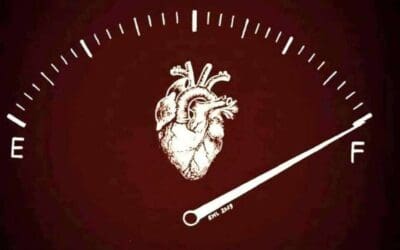Feeder bands or peripheral winds ?
Nowhere on earth can you go without experiencing storms in some fashion or the other. Thunderstorms, NorEasters, Hurricanes, Tropical storms or depressions, are all names of types of storms but essentially they are created the same, and they create the same effect in the end, destruction in its wake. If you are fortunate enough to have missed the storm but still close enough, you might be feeling the effects of the storm with strong gusty winds. What you do not know is whether these winds are feeding the storms ( feeder bands) or are these winds simply the after shocks of the storm as peripheral winds.
So too is the nature of anger. When someone falls into this state, this generates so much of negativity that you cannot help but get dragged into it. This is like the periphery winds, where you feel the energy of these negative winds emanating from the storm of anger, and this energy can sway you toward the storm. This eventually can also lead to feeder bands or winds. These winds as the name suggests feed the storm with moisture and power, enabling the storm to grow. So too if we let ourselves dragged into the storm with our own negativity and react, we just enable someone else’s anger ( verbal or vocal) to grow. We can talk or think negatively very easily about another who we once respected or spoke fondly about, in the presence of another who is spurring a negative portrayal of this person. They are generating anger, hatred and a lack of positivity, but it does not mean that we have to feed the storm or for that matter be effected by the peripheral windy backlash.
Holding your ground in a storm is not easy, but with the correct foundation and the correct frame of mind, it is not only possible but necessary so as to not lose footing when dealing with tumultuous emotions. Non reaction is part of the process, but so is a positive reaction if needed. How can this be? How can you be equanimous yet be reactive? This is the art of meditation and enlightenment. When faced with a negative situation, reacting positively will enable the balance to be restored and equanimity to reign. So using the hypothetical example above of talking ill about another. The person who is negatively venting for whatever personal reasons with their own deep seated roots of frustrated experiences, will continue to keep spewing their verbiage in the hope to gather momentum of their stormy conversation. You can choose to be a feeder band, or choose to hold your ground in the peripheral wind, and so shed a more positive light to the conversation with a differing opinion. The moment you choose to be different, you will think differently, you will speak differently and you will change the course of the storm. You can do it with calmness in your voice and be equipoised. This will lead to the state of equanimity, which usually generates a better outcome. Sometimes silence is a good thing, but in others if you are silent you are allowing agreement to occur thereby fueling the fire of the storm.
The forecasting of weather is as unpredictable as human emotion. But how prepared are you for a storm is entirely up to you, and your trained mind. Being on the edge of a storm experiencing its effects is a constant battle that we deal with, not only for ourselves but when dealing with each other. Reacting or not reacting to the nature of the weather of the abrupt emotion is a more tedious task. If you are more alert and aware of your own emotions and how to keep them in check, you can prevent becoming a feeder band to the storm. Being in control of your emotions, you are less likely to succumb to the peripheral wind of the storm.
Which way is the wind blowing in your neck of the woods?



